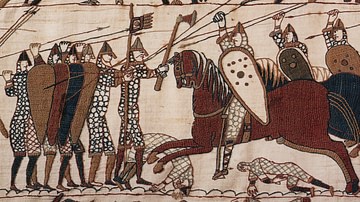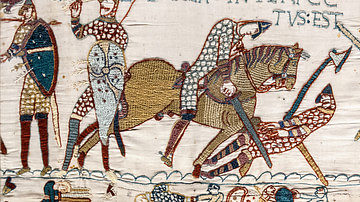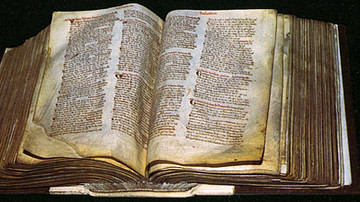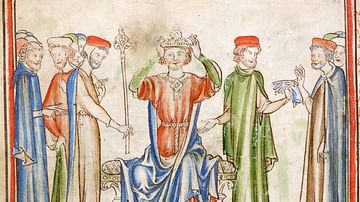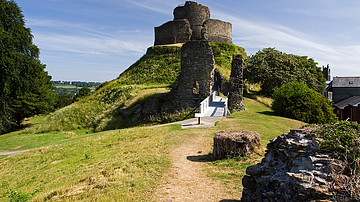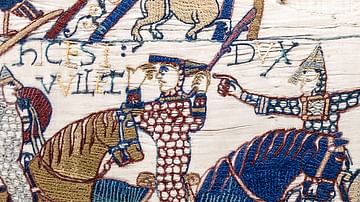The Norman Conquest entirely changed the history of England from 1066 CE onwards. After Harold II's defeat and death at the Battle of Hastings in 1066 CE, William the Conqueror was made the new king, the Norman elite completely replaced the old Anglo-Saxons barons, castles were built everywhere, and the two countries of England and France would be linked together in a love-hate relationship that lasts to this day. In this collection of resources, we look at the big battles, William's five-year struggle to put down rebellions from Exeter to York, and the many lasting political and social consequences. We also look at two of the greatest surviving windows into medieval Europe, the Bayeux Tapestry and Domesday Book.
Domesday Book is a treasure trove of information for historians and reveals much about 11th-century CE England. Studies of its figures reveal, amongst many others, such insights as:
- the names of 13,000 villages
- that 90% of the population then lived in the countryside
- that 75% of the population were serfs
- that many English lords had to buy back their lands from William after the conquest.



